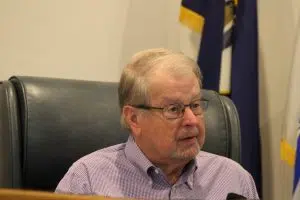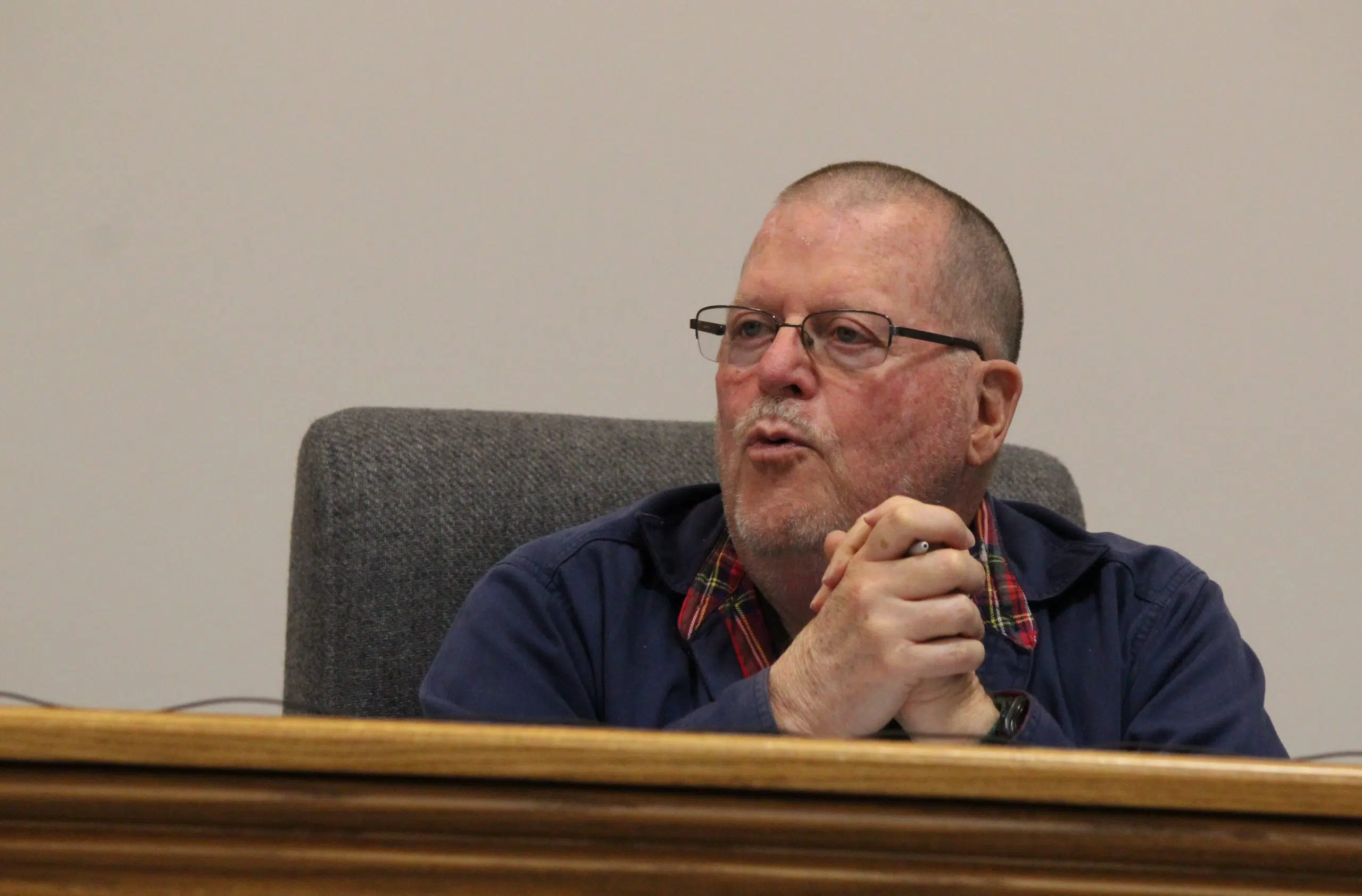BY MELINDA J. OVERSTREET
GLASGOW NEWS 1
A discussion of more than half an hour at this month’s regular meeting of the Joint City-County Planning Commission may be just the beginning of a lengthy process to change some local rules regarding where short-term rental properties such as those with Airbnb and Vrbo can be.
Commissioner Eddie Atnip brought up the topic, which was on the agenda for discussion only/no action, by stating he had some concerns he thought the group should address.
As it sits now, owners wishing to making their properties available for such short-term rentals – 30 days or less – must request a conditional-use permit from the Board of Adjustment. That board considered two requests at its February meeting from the same property owner, one of which was approved and one denied. The two properties are less than half a mile apart and are within the same Medium-Density Residential (R-2) District, thus having the same zoning designation, according to the Glasgow Zoning Map, which is among the documents available on the commission’s website.
The length of the discussion at what ended up being a 2.5-hour February board meeting created a one-hour delay on the start of the planning commission meeting, so most of the other commissioners heard at least a portion of the concerns and issues that were addressed by the board as they awaited the start of their own meeting.
On Monday, Atnip said he’s done some digging since then.
Airbnb was established in 2008 in San Francisco with the primary services of lodging, hospitality and home stay.
“They are a very commercial enterprise,” he said.
The company’s 2022 revenues totaled $8.4 billion, with $1.9 billion as net income, he said.
“So, it’s going through, if you would, individuals and into neighborhoods, but it is a commercial business,” Atnip said, adding that shares of the business are traded on the NASDAQ stock exchange.
Existing rules
Atnip then cited portions of the zoning ordinance defining low- and medium-density residential districts, also designated as R-1 and R-2, respectively.
“The purpose of the R-1 zoning district is intended to be the most restrictive residential district. The principal use of land in this district is for low density single-family and two-family residential uses and related recreational, religious and educational facilities normally required to provide the basic elements of a balanced, orderly, convenient and attractive residential area.”
R-2 is very similar in most ways.
“The principal use of land in this district is for low density single-family through four-family residential uses and related recreational, religious and educational facilities normally required to provide the basic elements of a balanced, orderly, convenient and attractive residential area.”
As Atnip noted, the zoning ordinance also specifies conditional uses that are permitted but require written approval of the Board of Adjustment, and they are the same for R-1 and R-2: “churches and other places of worship; parish houses; public libraries; hospitals for human care; nursing homes; cemeteries; schools offering general education courses; public parks; and noncommercial public recreational facilities; daycare as provided in § 158.351; public utilities; and philanthropic institutions and clubs, except a club the chief activity of which is customarily carried on as a business.”
It states the board may attach certain conditions to its approval that “it feels are necessary to preserve and protect the character of the district in which the proposed use would locate,” and several such conditions have been placed on these short-term rentals.
This portion of the ordinance addresses uses such as professional offices, studios or customary home occupations that are nonobjectionable and take place in a residential structure “but only by a person residing in the dwelling,” and the provided that, tools or instruments used in pursuance of these occupations are ordinarily found in the home and that not more than 25 percent of the total floor area in any dwelling unit is devoted to the use.”

Tommy Gumm, who chairs the Joint City-County Planning Commission of Barren County, asks a question during Monday’s commission meeting. MELINDA J. OVERSTREET / GLASGOW NEWS 1
What Atnip may not have noticed are the sections on “accessory uses” that followed the conditional-use sections within each of these types of zoning.
There, it states, “Accessory buildings or uses customarily incidental to any aforesaid use are permitted in residential districts, but only under the following conditions: (A) The taking of boarders or tourists or the leasing of rooms by the family residing on the premises, provided not more than six rooms are used for such purposes.”
The Morningside Drive property, for example, was considerably larger than the Garmon Avenue one, and this segment of the ordinance could come particularly into play with those situations.
Atnip said he could identify with the Morningside Drive neighbor who testified against allowing the permit there and who spoke about knowing all of his neighbors and how we would be worried not knowing who would be staying in the house that was the proposed Airbnb site there on any given day. Atnip said he had lived in a similar neighborhood before.
Potential actions
He cited population and crime statistics and said several cities, including Bowling Green and Boone County, had enacted local ordinances to help combat some of the concerns.
He cited Kentucky Revised Statute 100.243, which deals with granting variances and the conditions for doing so, and Atnip said he felt these “minihotels” would not meet those requirements.
“I think we need to move toward getting R-1 verboten (forbidden) as far as putting Airbnbs on it. We have the power to do it,” Atnip said. “I just bring this to you; I think we need to act on it.”
Charley Goodman, the commission’s attorney, requested clarification on the action he was proposing.
“Are you saying that the existing ordinances we have does not allow the Board of Adjustment the flexibility to grant a variance for a B&B, or are you saying that we need to consider drafting additional ordinances or amending ordinances to make it abundantly clear that Airbnb’s would not be allowed under any circumstance, including bringing it before the Board of Adjustment?” he asked.
After further discussion, Atnip said he thinks they need to clean up some of the wording, and Goodman said they need to make a determination as to whether the existing ordinance provides that flexibility.
“I know how you feel,” Goodman said, emphasizing “you,” “but others may feel otherwise in terms of allowing B&B’s to exist in residential areas, so there are a lot of moving parts to this.”
He suggested the commission have an ad hoc committee to investigate all the issues related and bring an analysis back to the commission, and Atnip said he liked that suggestion.
Goodman said even if they decide to change the ordinance, it could be a “rather protracted process,” and Atnip said he was concerned that in the meantime, more such permits could be granted.
Kevin Myatt, planning director for the commission, clarified that this would be Glasgow’s zoning ordinance from which Atnip read, and he revisited a few of Atnip’s points.
Commission Chair Tommy Gumm asked Myatt how many such requests they’ve had, with Myatt answering that it was six to 10, but he could only think of one that was in an R-1 district.
Commissioner Forrest Wise said he anticipated they would continue to become more popular.
Next steps
Ultimately, because the agenda had specified no action would be taken on the matter, a committee was not appointed – yet – but a request was made that before the next meeting, the staff gather some examples of ordinances from other locations. The next regular meeting is at 7 p.m. April 17 in Council Chambers on the second floor of Glasgow City Hall.
Myatt said the earliest they could have a text amendment up for a commission vote is May, and then if they approve it, that’s still just a recommendation. The Glasgow council — and potentially the other cities’ and the county’s governing bodies depending on where all the changes would be – would have to approve two readings of any respective ordinance amending the zoning ordinance and publish it before it would take effect, so he estimated the process would take at least six months.
In other business, the commission addressed several action items that are reported separately here.

Comments